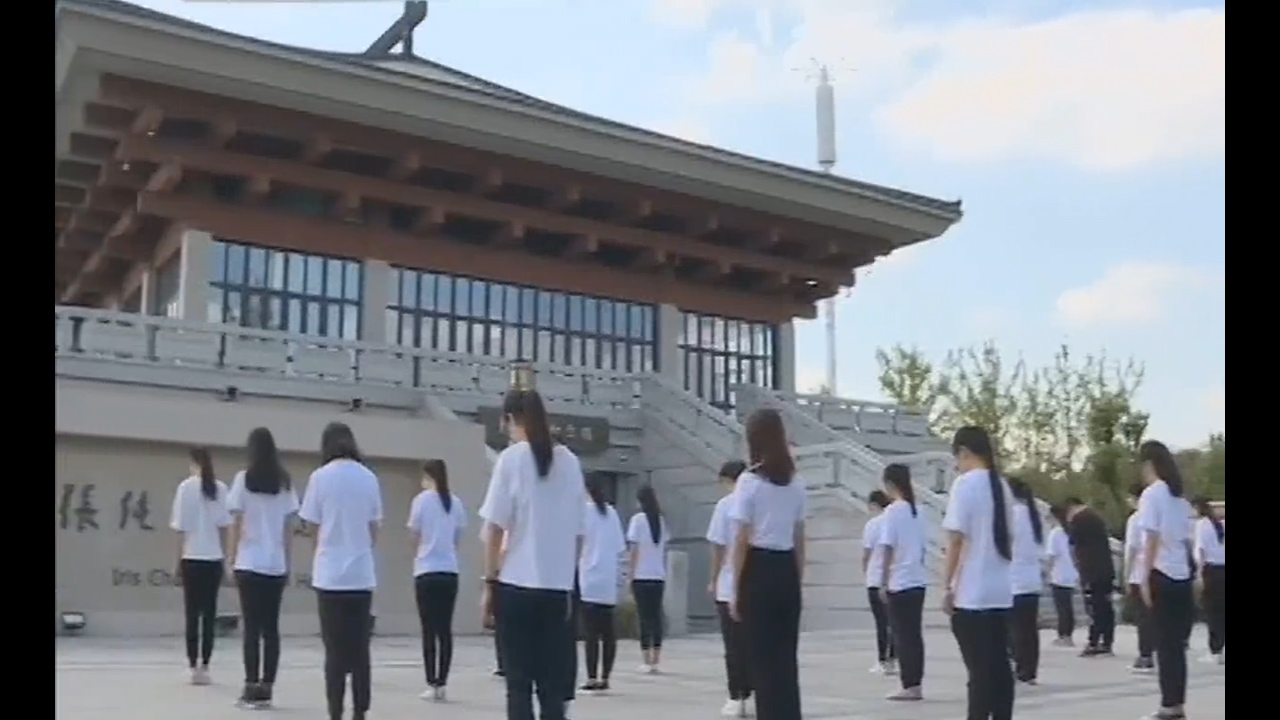The bell rang and siren went off Monday in various parts of Jiangsu province to mark the outbreak of the war of resistance against Japanese invaders 86 years ago.
The students of Huaiyin Normal University lined up before the Iris Memorial Hall in Huai'an city amid the sound of air defense sirens, bowing their heads in silence to express their grief to the revolutionary martyrs and innocent compatriots who died in the anti-Japanese war.
In the Suqian Siyang section of the Beijing-Hangzhou Canal, nearly a hundred ships honked for 3 minutes while quietly parked in the fairway. Mobile alert convoys were arranged to move along the rural-urban highways in Danyang county to remind the people not to forget national humiliation and rejuvenate the Chinese nation.
Students with Jiangsu agricultural and forestry vocational college students signed on inkjet banners to express their patriotic feelings.
Some students of YanchengTeachers’ College traveled to Xiangshui County in search of the ruins of anti-Japanese war and listened to the narration of the painful history by a war veteran.
The bell also rang and siren went off Monday at the September 18 Incident History Museum in Shenyang, capital of northeast China's Liaoning Province.The bell was rung 14 times, representing the 14 years the Chinese people fought the Japanese invaders.
Behind the museum is an expressway linking Harbin with Dalian. More than eight decades ago, it was part of the South Manchuria Railway, where the shocking Liutiaohu incident occurred. On September 18, 1931, the Japanese Kwantung Army stationed in northeast China destroyed a section of the railway near Liutiaohu and then falsely accused the Chinese military of causing the explosion.
Using this as a pretext, the Japanese then bombarded Shenyang and began invasion of northeast China.
By January 1932, all three provinces in northeast China were occupied by the Japanese army.
The period has been referred to as the "darkest days of modern China."
People around China hold events every year to mark major incidents of the Japanese invasion, including the Lugouqiao Incident and the Nanjing Massacre.






